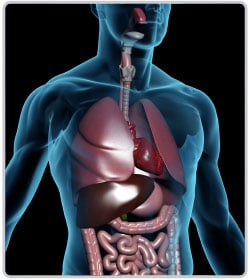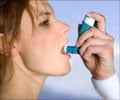Q: Which doctor should I see if my child has asthma?
A: You must consult an allergist / immunologist (a pediatrician with at least two additional years of specialized training in the diagnosis and treatment of problems such as allergies, asthma, and autoimmune diseases).
Q: Does asthma run in families?
A: The tendency to develop allergies including allergic asthma often runs in the family. There are, however, a number of other things that can cause children to develop asthma.
Q: What do you do in case of an asthma attack?
A:
- Take 2 puffs or more of your reliever inhaler straight away using a spacer (your doctor will advise you regarding the exact dose and technique).
- Keep calm and try to relax as much as your breathing will let you. Sit down; do not lie down.
- Support yourself by resting your hands on the knees.
- Try to slow your breathing down; this will make you less exhausted.
- Wait for 5-10 minutes.
Q: What is the first-aid for asthma?
A:
- Make the person to sit upright
- Be calm and reassuring
- Give four puffs of a reliever -one puff at a time with 4 breaths between each puff
- Wait for 4 minutes; if the person still cannot breathe properly give 4 more puffs
- If there is still no improvement call emergency assistance; keep giving 4 separate puffs until the ambulance arrives
Q: What do you do when you do not have your inhaler?
A:
- Sit upright - Bending or lying down can constrict your breathing.
- Get away from the trigger - Stay calm and breathe in through you nose and breathe out through your mouth; get away from the place of trigger and try going to an air conditioned environment or any place with clean air.
- Take a hot caffeinated beverage - Hot beverages like coffee can open up airways and provide some relief
- Press on some acupuncture points - The front parts of your inner shoulders and outer edges of your elbows are called ‘lung points’, pressing on it for a few minutes may help relax muscles that are tightened up.
- Seek emergency medical help - If the breathing difficulty, wheezing and coughing do not subside after a period of rest then seek immediate medical attention.
Q: Is there a cure for asthma?
A: At present there are methods to relieve asthma. Thanks to research this might change in future.
Q: What climate is best for a person with asthma?
A: No specific climate is ideal for people with asthma, since there are so many triggers for symptoms, which differ from person to person. If you move to a new area triggers in the new environment may provoke your symptoms more or less than where you lived before.
Q: At what age does asthma start? Is asthma contagious?
A: Asthma can start at any age; many children with asthma have had their first asthma attack before the age of 6. No, asthma is not contagious.
Q: Can you die from an asthma attack?
A: Yes, but most people who have an asthma attack get help and get well. However it can kill you when it is not treated the right way. United Kingdom has the largest number of deaths due to asthma followed by the rest of Europe.
Q: Why does asthma worsen at night?
A: Asthma symptoms worsen at night because the level of the natural steroid in the body that is protective in nature is low at night. Several other causes include close proximity to dust mites in pillows and bed linen at night.
Q: Is there a risk with asthma or its medications during pregnancy?
A: The fetus in the womb depends on the air that the mother breathes for its oxygen. Refrain from stopping your asthma medication during pregnancy thinking that it may harm the fetus, as the risk to the fetus from medications is tiny when compared to the risk from an asthma attack
The symptoms of an attack tend to be worse during weeks 24-36. In rare cases fetus can die from oxygen deprivation.
Pregnant women with mild asthma are unlikely to have problems. those with severe asthma are at a greater risk for deterioration, which is highest in the last week of pregnancy. Poorly controlled asthma can lead to:
- Preeclampsia
- Pre-term labor
- Low birth weight
- Neonatal hypoglycemia
Q: What side effects should be expected from the medications?
A: Side effects from inhaled corticosteroids are minor when the proper amount is taken. Few people get cough, hoarseness in voice, and yeast infection. Patients can protect against these by gargling with water.














